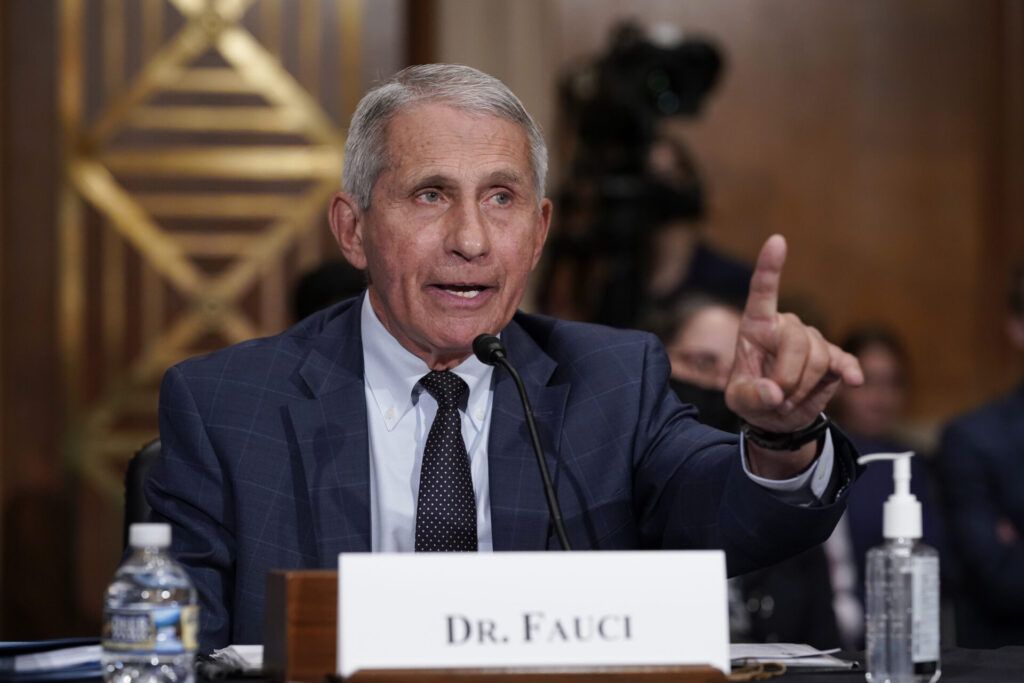Why science needs marketing
By Melissa Harris | October 7, 2024
 Top infectious disease expert Anthony Fauci responds to accusations by Sen. Rand Paul, R-Ky., as he testifies before the Senate Health, Education, Labor, and Pensions Committee, on July 20, 2021. (Photo by J. Scott Applewhite-Pool/Getty Images)
Top infectious disease expert Anthony Fauci responds to accusations by Sen. Rand Paul, R-Ky., as he testifies before the Senate Health, Education, Labor, and Pensions Committee, on July 20, 2021. (Photo by J. Scott Applewhite-Pool/Getty Images)
I’m not a scientist, I’m a marketer. And I’m going to tell you something that sounds odd: The scientist and the marketer need each other. In fact, all of society needs these two types of people to spend as much time working together as possible.
To be more explicit: Science needs marketing in the same way Nike needs marketing. In this age of mis- and disinformation, a scientist’s job must expand from discovery alone to discovery and persuasion. And that’s where marketing comes in.
When I talk with clients of my marketing firm or the MBA students I teach about entrepreneurship, I explain the building blocks this way: You need to think about marketing from the moment you have an idea. It’s not an additional, onerous task. It’s fundamental to success.
Scientists who work at universities understand the importance of marketing to some degree; they have to submit endless applications for grants to fund their research. They often have to sell their work well enough to cover their own salaries and those of their graduate and postdoctoral students—but they usually only have to sell to a very narrow audience of peers and experts.
Marketing, however, is fundamentally different from sales. The latter focuses on closing the deal. The former focuses on raising awareness and attracting interest.
Scientists do so little of this that I can only name one AI expert of any renown, Sam Altman. And my knowledge of Altman has nothing to do with his brilliance, but, rather, his highly publicized firing from and rehiring at the artificial intelligence company OpenAI.
We lack an Albert Einstein- or Robert Oppenheimer-level figure in the climate discussion. There is only one such personage in public health: Anthony Fauci, who was the US government’s most conspicuous spokesman during the COVID-19 pandemic.
Given the attacks Fauci has endured, it’s easy to understand why many scientists avoid the spotlight. Former Fox News host Tucker Carlson accused Fauci of engineering the COVID-19 pandemic and called him a “Stalinist midget” and “an even tinier version of the Dalai Lama” on cable television.
In the face of criticism that only can be described as weird (hat tip Tim Walz), scientists must marshal teams to help them explain their discoveries and ultimately win converts to fact-based reality—people who will buy electric vehicles, get vaccinated, and avoid single-use plastic.
Note that I italicized the team part. Scientists can’t do this alone. They need marketers to craft their messages so those messages have the greatest chance of changing public behavior. But scientists also need marketers to protect and defend them when the inevitable attacks come.
So how do we get scientists and marketers to team up? After years of marketing science— including COVID-19 testing in Illinois and vaccines nationally—I’ve concluded there’s one policy that our nation could implement that would make a big difference.
Just as Nike needed a marketing budget from its very beginnings, all federal and philanthropic research grants should come with money for marketing. Scientists would be required to submit marketing and communications plans with their grant applications; agencies and foundations would then fund both the science and the marketing at the same time.
These marketing budgets should be substantial, not symbolic, because the challenge of reaching and convincing a skeptical public about the value of science has become so immense. We’ve seen some agencies that fund our clients, such as the National Science Foundation, follow this approach, but most organizations do not.
Without this teaming on a regular basis, we’ll be left with the status quo.
- The average American will continue to use 167 plastic water bottles per year but recycle only 38 of them.
- People in rural states like Mississippi will continue to have abysmal adult vaccination rates of about 11 percent.
- Houses will continue to get built in floodplains and high-risk hurricane zones.
- And electric and hybrid vehicles will continue to make up about 1.2 percent of the 281 million vehicles registered nationally.
The science is there. The money needed to convince the nation to act on the science is not—but should be.
Together, we make the world safer.
The Bulletin elevates expert voices above the noise. But as an independent nonprofit organization, our operations depend on the support of readers like you. Help us continue to deliver quality journalism that holds leaders accountable. Your support of our work at any level is important. In return, we promise our coverage will be understandable, influential, vigilant, solution-oriented, and fair-minded. Together we can make a difference.
Keywords: Disinformation, marketing, misinformation, science
Topics: Biosecurity, Climate Change, Opinion, Science Denial
















A timely call to action. Thank you Melissa! I am a brand strategist with a focus on cultural change. I would add that marketing guided by brand strategy is a key ingredient to soberly addressing market challenges, i.e. the growing decline in confidence in science and other institutions of knowledge. Without a concerted effort to protect the brand esteem of science and guide the conversation productively, it’s just a matter of time before politics coopts the narrative.